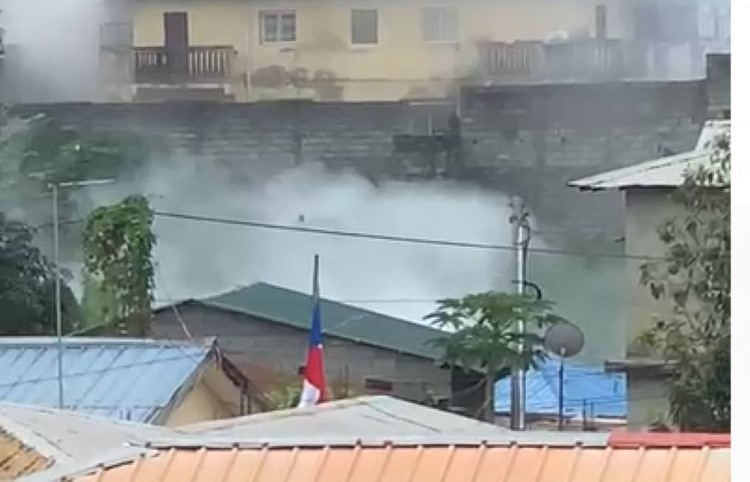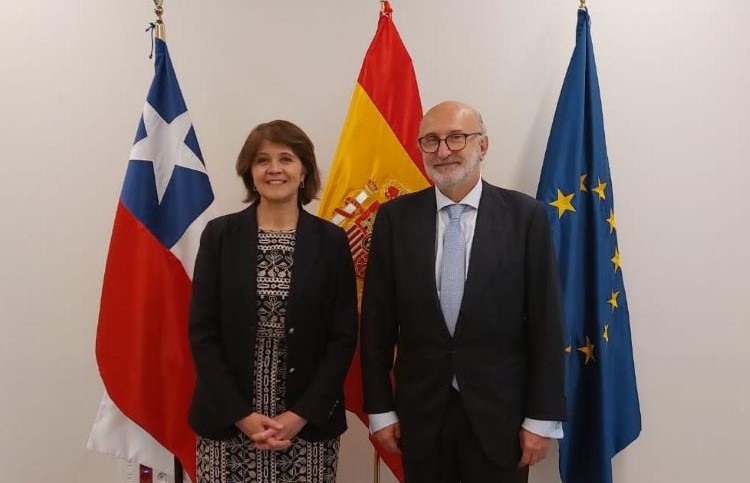Eduardo González
The Government of Spain yesterday expressed “extreme concern” over the “siege and assault” by the bodies and state security forces of Equatorial Guinea against the headquarters of the opposition Citizens for Innovation (CI) party in Malabo.
“The reports received of unusual violence between opponents and security forces manifest a climate of tension incompatible with the necessary dialogue during the current electoral period,” the Ministry of Foreign Affairs said in a statement. “Spain calls for restraint and the opening of channels of dialogue between all political forces and civil society to allow the elections to be held in an atmosphere of tolerance and openness,” it continued.
Likewise, “Spain appeals to the Equatoguinean authorities to act with prudence and responsibility in such a delicate moment” and expresses “the need to preserve the legal security and procedural guarantees of all those detained”. For its part, the Spanish Embassy in Malabo has recommended Spanish citizens “to adopt the usual precautionary measures in view of the events taking place in Malabo”.
Last Thursday, the State security forces stormed the party headquarters after several days of siege. According to opposition sources, about two hundred people were barricaded inside the headquarters, among them women, children and elderly people. According to government sources of the Equatorial Guinea Television (TVGE), the assault has resulted in the arrest of dozens of people, among them the leader of CI, Gabriel Nsé Obiang Obono.
Citizens for Innovation was founded in 2005. In 2017, CI was the only opposition party to win a seat in the Chamber of Deputies (the remaining 99 went to President Teodoro Obiang Nguema’s formation, the Democratic Party, PDGE). However, the party’s only deputy was convicted in 2018 during a trial for alleged coup attempt, which also concluded with the illegalization of the party. The party’s own leader has repeatedly assured that the formation was legalized again that same year following the general amnesty enacted by the Government for political prisoners, but the Attorney General’s Office assured this very week that CI was “dissolved” by the country’s Justice in February 2018 for “rioting and contempt of authority”.
Last Wednesday, Gabriel Nsé Obiang denounced that more than 200 supporters of the formation, including minors, were trapped in the party’s headquarters since last Sunday because of the siege by security forces. According to Nsé Obiang, the action of the security forces was ordered by Teodoro Obiang Nguema and his son, Vice President Teodoro Nguema Obiang (Teodorín). In a statement, the party itself denounced Thursday that its leader “and some 400 of its militants” had been besieged “for seven days without any court order to justify it” just for claiming, “as every citizen and adult, members of a political party”, their right to “participate in the polls with full rights as the PDGE”.
For its part, the Equatoguinean Attorney General’s Office has accused the leader of CI of attempting to “volatilize at least four gas stations, cold-bloodedly assault members of the Government and intervene some Embassies based in the country” and of sheltering more than 200 citizens in his home, including pregnant women and children, for a cause that he does not clarify before the legal authority of the country”.
The Progress Party of Equatorial Guinea (PPGE), an outlawed opposition formation exiled in Spain, has “strongly” denounced the siege and subsequent assault carried out at the headquarters of Citizens for Innovation (CI) and assured, from sources inside Equatorial Guinea, at the end of the morning, that the security forces have arrested the leader and “many militants” of the party and during the assault there were “quite a few wounded and a total of five dead”.
“It seems that these events have occurred with the presence of several ambassadors and diplomatic personnel, as well as the international press, who will have taken good note of the brutality of this dictatorship,” assured the party, founded by Severo Moto and led from Madrid by Armengol Engonga Ondo. Armengol Engonga himself, he added, “has been sending detailed information to the different Embassies, as well as to some international institutions guarantors of human rights”.







